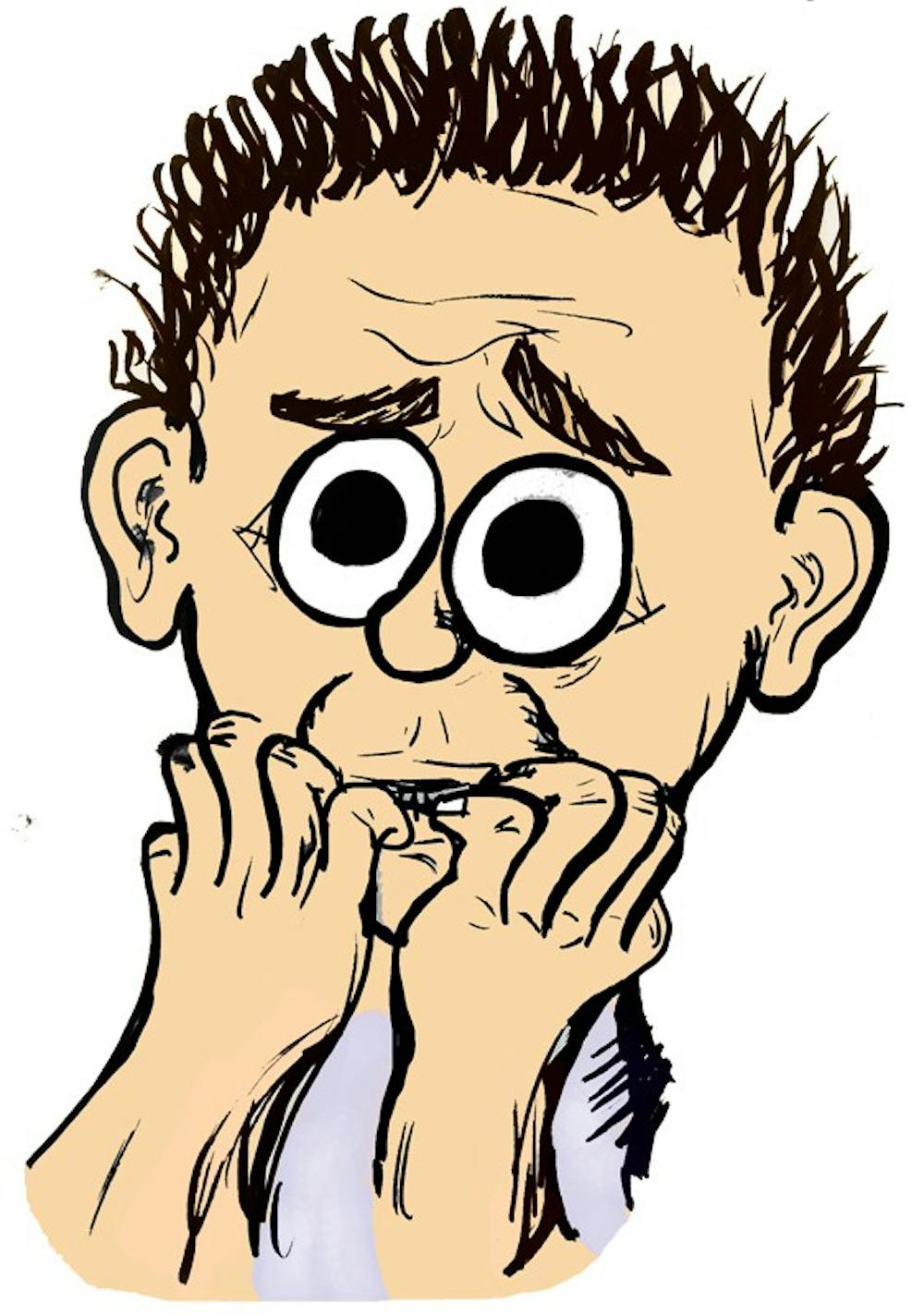It can be seen in a lecture hall or at the library during the wee hours of the morning. Nail biting is quite prevalent among young people, yet most students do not quite grasp the potential seriousness of the condition.
"The behavior is very common among teens and young adults, and can range from an occasional annoyance to an actual compulsion," University Behavioral Science Director Claudia Allen said.
Even occasional nail biting, however, can quickly become a more aggressive habit, and stress is a primary catalyst, said Amy Alson, assistant professor of psychiatry and neurobehavioral sciences. Alson described nail biting as a "maladaptive coping mechanism," or a habit created to cope with a stressor, which, in turn, leads to new problems.
"These behaviors can significantly affect a person's appearance, cause shame and discomfort around others and can lead people to avoid social situations or modify their dress to hide their scars, bald spots or stubby nails," Alson said.
It is difficult to determine the exact percentage of teenagers and young adults who bite their nails because nail biters themselves do not usually acknowledge their condition.
"People don't usually seek professional help for it," Allen said. "They just try to cope with it themselves."
When Alson treated a severe nail biter a few years ago, the young adult experienced difficulty coming to terms with the severity of her habit.
"Like most nail biters, she didn't think it was a problem worth coming to a doctor about," Alson said. "But I noticed it in the office."
When biting occurs so frequently that the nail bed becomes exposed, long-term scarring and unsightly nails are the obvious aesthetic side effects. But nail biting can lead to psychological issues as well.
"Nail biting is also associated with spreading contagious disease, both from yourself to others, and from transferring germs on your hands to your mouth," Allen said. "Psychological effects can include shame and anxiety about others noticing, and obsessive, time-consuming behavior that interferes with other activities."
Third-year College student Stephen Locatelli has been biting his nails since he was a child.
"Then I don't have to cut them," he said. "But I don't [bite my nails] when I'm sick. That's pretty disgusting."
First-year Engineering student Erin Boehmer said she tends to bite her nails while studying.
"I need to be doing something with my hands," she said.
To help overcome their condition, experts said biters need to think twice before they start nibbling on their nails.
"The first step is to start noticing that you are doing it and when, because the behavior is often unconscious," Allen advised. "The next step is to catch the impulse before the behavior. Third, you formulate the decision not to go with the impulse."
Biters who cause physical damage to their nail beds are highly encouraged to seek help from a therapist because it is not an easy condition to treat. Remedies for less severe cases involve a good social support system and consciously stopping the impulse to gnaw at the nails.
"It's crucial to realize that each single time you resist the impulse, you are weakening it," Allen said. "So stopping gets easier as you continue to try. It's hardest at first, so don't be discouraged as you start the process"







